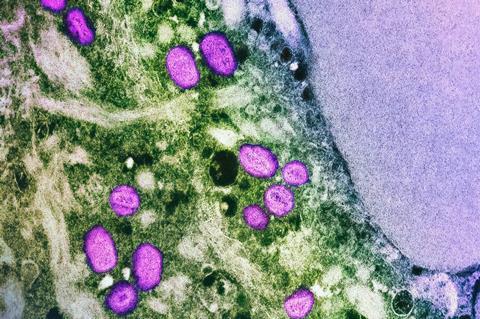Research by experts from The Dutch National Institute for Public Health and the Environment (RIVM) hypothesise that it is not likely that preventive vaccination was a driver of the outbreak’s decline, as the mpox incidence started to decline before the start of the vaccination programme. Rather, the reason appears to have been that infection-induced immunity in high-risk groups was an important factor explaining the decline.

To be effective in preventing new cases, future vaccination programmes need to be implemented fast after the first cases are observed. The study, published in Eurosurveillance, provides an in-depth analysis of the 2022-2023 mpox outbreak in the Netherlands, which predominantly affected gay, bisexual, and other men who have sex with men (GBMSM).
The Netherlands experienced a significant decrease in mpox cases starting in July 2022, following the first reported case on May 20, 2022. By December 31, 2023, a total of 1,294 cases had been documented. The primary preventive vaccination (PPV) programme was launched on July 25, 2022, with 29,851 doses administered by April 30, 2023. The overall vaccine uptake rate was 45.8%, with 35.4% of the target population being fully vaccinated. The efficacy of full vaccination in preventing symptomatic mpox was estimated at 68.2%, highlighting the effectiveness of vaccinations despite the outbreak’s natural decline.
High-risk behaviours
Haverkate et al. found no significant reduction in high-risk behaviours among GBMSM attending sexual health centres during the outbreak, suggesting that behavioural changes were not the primary factor in the outbreak’s decline. The authors posit that immunity acquired through infection among high-risk groups substantially contributed to the decrease in mpox cases.
Several key strategies for managing future mpox outbreaks are recommended. Firstly, the importance of prompt vaccination implementation is underscored, advocating for the swift initiation of vaccination programs as soon as initial cases are detected to curb widespread transmission.
Secondly, the study highlights the need for ongoing surveillance, emphasising the necessity of maintaining vigilant monitoring of mpox cases and high-risk behaviours to inform timely public health interventions.
Lastly, it calls for a comprehensive evaluation of vaccination program effectiveness, suggesting continuous assessment and adaptation of strategies based on emerging data and population dynamics. These recommendations aim to enhance the effectiveness of public health responses and mitigate the impact of mpox outbreaks.
Prevention of future outbreaks
The research emphasises the necessity of prompt vaccination efforts to effectively control future mpox outbreaks. Although the vaccine demonstrated substantial effectiveness, its impact was mitigated by the timing of the vaccination rollout. Infection-induced immunity and other factors likely played a significant role in the outbreak’s decline before widespread vaccination.
This study highlights the essential role of timely vaccination in managing infectious disease outbreaks and offers valuable insights for public health strategies against mpox.







No comments yet